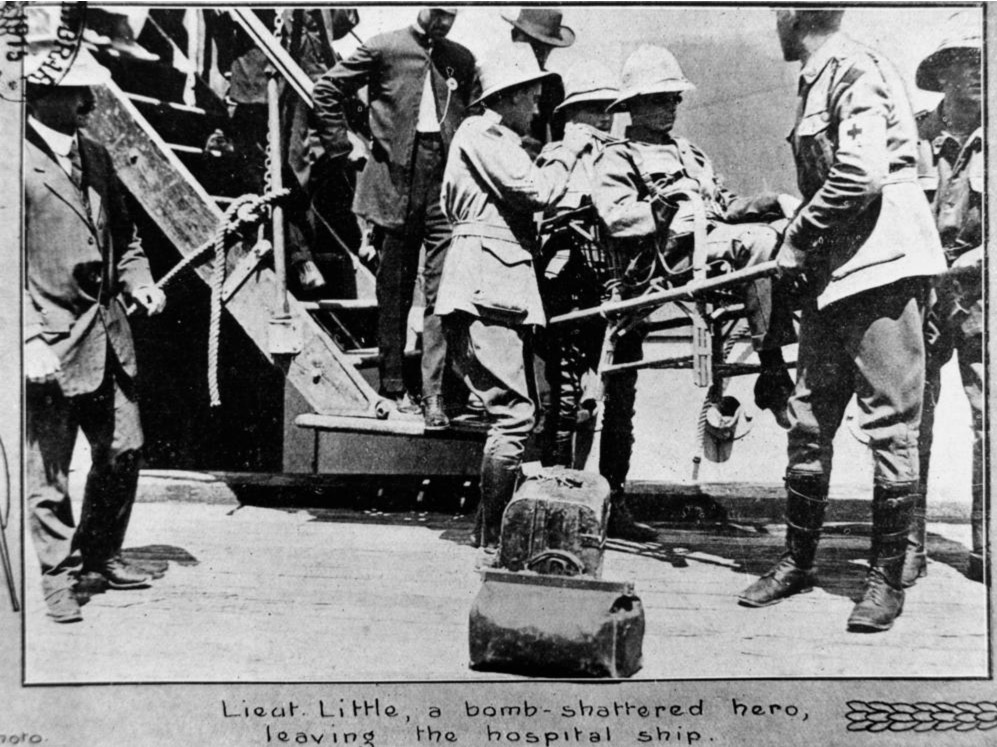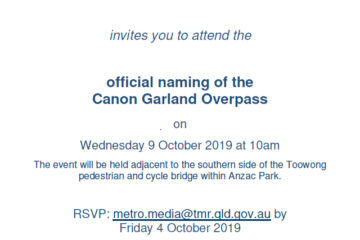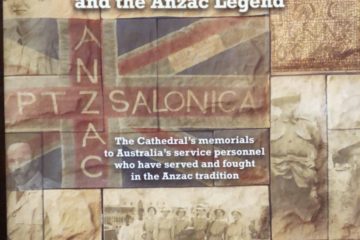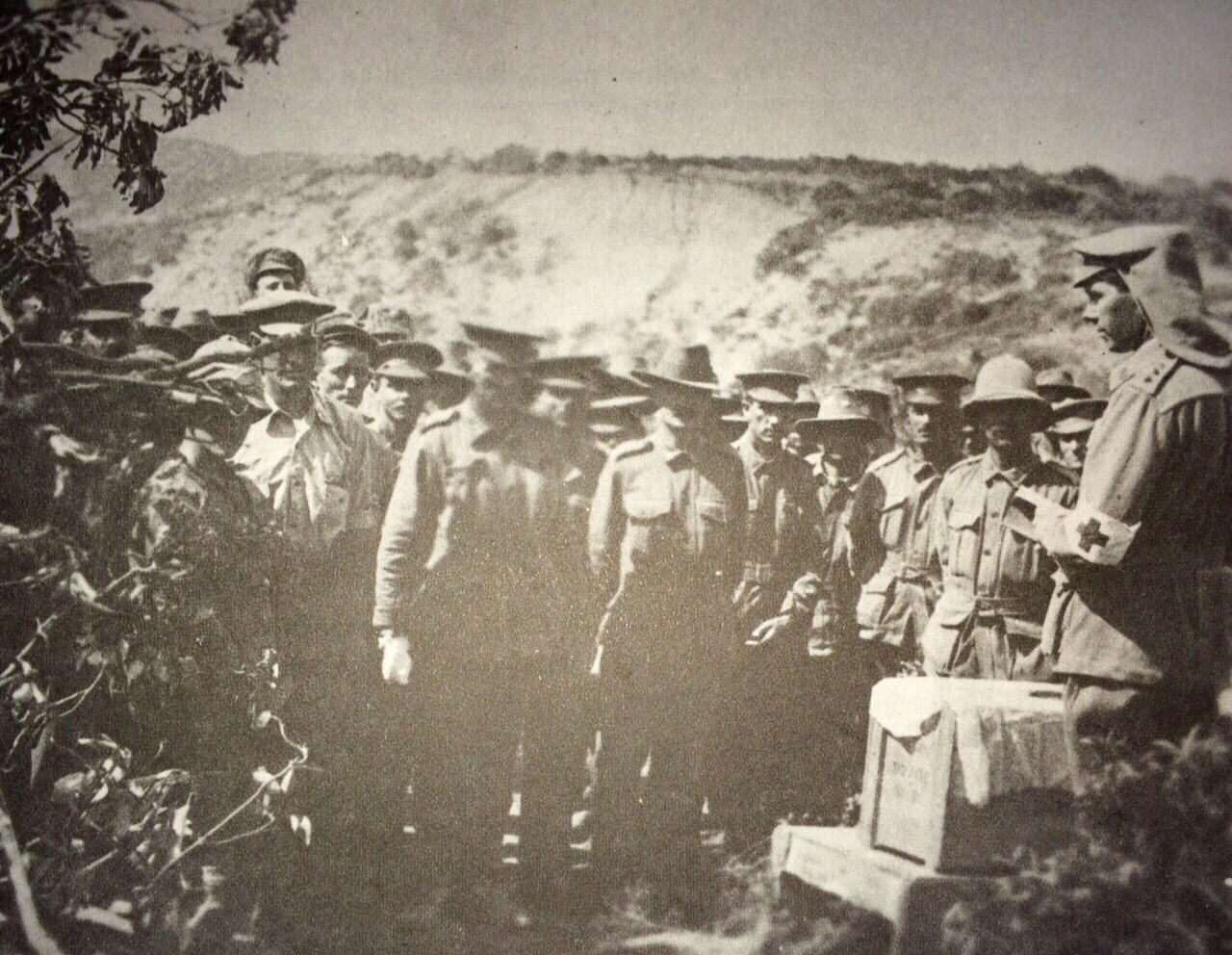‘Australia Asleep’

PICTURED ABOVE: Gallipoli veteran, Lieutenant Edwin Maurice Little is carried gingerly down the gangway of HMAT Kanowna at Brisbane’s Kennedy Wharf on Sunday, 28 November 1915. This image originally appeared on page 7 of “The Brisbane Courier” edition of 30 November 1915, but this version is drawn from the State Library of Queensland Collection (Record No. 181367). The Barcaldine-born, school teacher son of a North Ipswich parson was blinded, partially deafened and had his right arm blown off when a grenade he was throwing blew up on 29 May 1915. Discharged from the Queensland-raised 15th Infantry Battalion on medical grounds, Lieutenant Little became a passionate member of the Queensland Recruiting Committee’s team of fellow veterans who travelled the State extolling men to join the Colours. He gave a rousing speech at a recruiting rally held at Rockhampton’s School of Arts on Saturday, 9 June 1917. At the 16 March 1918 State election he stood (unsuccessfully) as the Nationalist candidate for the electorate of Bremer in the Queensland Legislative Assembly.
CANON GARLAND ON
THE DANGER OF INGRATITUDE.
SOME vigorous remarks on the result of the recent conscription poll, and lessons arising there from were made by Canon Garland [ David John Garland ] in the course of a sermon preached in [ Brisbane’s ] St. John’s Cathedral, city, last night [ 3 December 1916 ].
The occasion was Advent Sunday.
Speaking from the words, “Now it is high time to awaken out of sleep” (Romans 13—11), the preacher dwelt on the recent condition of things as indicating that Australia was only half awake.
It seemed to him that, if the people had been awake to the fact of the war, they could not have given the answer they gave a few weeks ago.
It was an answer which showed ingratitude to the Empire, under whose shelter they had remained in occupation of Australia for the past 150 years.
Further, were it not for the Empire’s navy they would now be suffering the horrors that befell Belgium, Servia [ sic, Serbia ], Poland and Northern France.
In the answer to the referendum question there was ingratitude to our dead heroes whose sacrifice were made to be vain by the refusal of selfish men to make that sacrifice efficient.
There was ingratitude to our wounded and maimed heroes.
He had heard Lieutenant Little [ Edwin Maurice Little ] speak. His appearance in itself was an appeal.
Maimed, blinded and scarred, he begged Australia to vote “Yes.” — and Australia had listened to the shirker rather than to this and other heroes.
There was ingratitude also to our present soldiers, fighting in the slush in hourly danger of their lives.
Speaking through their General, they appealed for adequate help (and let no one question that appeal).
Australia, continued Canon Garland, could not have been so ungrateful if she had been awake to her duly, her possibilities, and her honour.
Her vote was selfish.
There was no eight hours a day for the men in the trenches. Yet men in Australia had placed their personal interests above the welfare of the men at the Front.
Years ago both the present King [ George V ] and Lord Roberts [ Frederick Sleigh Roberts ] had urged England to awake. Had they been listened to there would have been no war to-day.
Similarly, unless Australia aroused herself there was no hope for her future. All we had taught ourselves to be, and hoped to be, had proved false.
The whole Commonwealth needed waking to the old sense of duty and self-sacrifice.
– from page 5 of “The Daily Mail” (Brisbane) of 4 December 1916.


